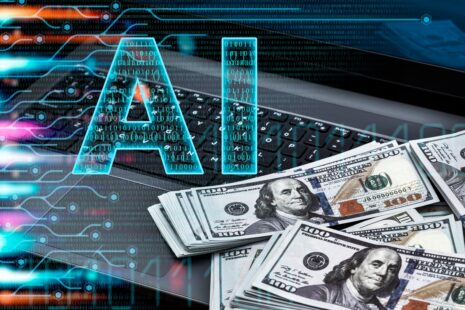While AI is revolutionizing many industries and automating numerous tasks, there are still some jobs and roles that AI will struggle to replace. These jobs typically involve creativity, complex decision-making, emotional intelligence, and human interaction.
Some Jobs And Roles That AI Will Struggle To Replace
Creative Professions
- Artists, Writers, and Musicians – AI can assist in generating content like music, art, and written work, but it lacks the intrinsic human creativity, emotional depth, and personal experience that are often crucial in these fields. For instance, AI can compose music or write stories based on existing patterns, but it cannot create original works that evoke complex emotions or cultural relevance in the same way humans do.
- Example – AI-generated art like DALL-E or music compositions can mimic styles but lack the spontaneity and unique creative spark that human artists bring to their craft.
Healthcare Professionals
- Doctors and Nurses – While AI is a valuable tool for diagnosing diseases, analyzing medical images, and recommending treatments, it cannot replace the human touch and judgment needed in patient care. Doctors need to interpret complex medical information, make decisions in ambiguous situations, and understand the emotional needs of their patients.
- Example – A doctor’s ability to empathize with patients, explain diagnoses in understandable terms, and offer emotional support cannot be replicated by AI, which lacks genuine human understanding.
Psychologists and Therapists
- Mental Health Professionals – AI can assist with mental health monitoring and provide tools for self-help, but it cannot replace human therapists who offer deep empathy, trust, and personalized support. Mental health professionals engage in nuanced conversations and make decisions based on the individual’s emotions, personal history, and life context, which are not easily replicable by AI.
- Example – AI chatbots like Woebot can provide some level of mental health support, but they cannot form meaningful therapeutic relationships, which are key to successful treatment.
Educators and Teachers
- Teachers and Educational Counselors – AI can help automate grading, provide educational resources, and assist with personalized learning, but it cannot replace the role of a teacher in fostering critical thinking, emotional development, and social skills. Teachers create meaningful relationships with students and offer mentorship and guidance that AI is unable to replicate.
- Example – AI-driven tools like Khan Academy help with learning, but they cannot match the social and emotional intelligence that human educators bring to classrooms.
Skilled Trades and Craftsmanship
- Carpenters, Electricians, and Mechanics – Many skilled trades involve hands-on work, problem-solving in real-world situations, and the use of manual dexterity and craftsmanship that AI cannot replicate. While robots and AI can assist with some tasks, human expertise is often required to troubleshoot and perform complex, creative tasks.
- Example – A carpenter’s ability to design custom furniture with precise measurements and unique details goes beyond what an AI can manage with tools and pre-set instructions.
Leaders and Managers
- Executives, Managers, and Entrepreneurs – Leadership involves vision, decision-making, strategic thinking, and managing human relationships, which are all complex tasks that AI struggles to perform. Leaders must navigate uncertainty, inspire others, and respond to dynamic situations, while also considering human emotions and company culture.
- Example – CEOs of companies like Apple and Tesla, such as Tim Cook and Elon Musk, provide leadership that drives innovation and fosters company culture in ways AI cannot.
Negotiators and Diplomats
- Human Negotiators – AI can assist in analyzing data and suggesting negotiation strategies, but the nuanced, interpersonal skills required in high-stakes negotiations, such as empathy, trust-building, and understanding cultural contexts, are areas where humans excel. Diplomats, for example, must navigate complex political situations, weighing emotions and human factors that go beyond data analysis.
- Example – Peace negotiations and corporate negotiations often hinge on human elements, such as tone, timing, and non-verbal communication, which AI cannot interpret effectively.
Ethical and Legal Advisors
- Lawyers and Ethical Experts – While AI can assist in analyzing legal documents and case law, it lacks the deep understanding of ethics, morality, and legal judgment needed in complex cases. Human lawyers are needed to argue cases, interpret laws, and navigate the nuances of ethical dilemmas in a way that AI cannot replicate.
- Example – Criminal defense lawyers or human rights advocates often handle cases that require a deep understanding of social, moral, and ethical considerations.
AI has made significant strides in automating routine tasks and enhancing productivity, but jobs that require creativity, complex decision-making, emotional intelligence, and interpersonal relationships will continue to rely on human expertise. These roles are where humans have an edge that AI, for the foreseeable future, cannot replace. As AI technology evolves, collaboration between AI tools and human workers will likely become more prevalent, allowing both to complement each other in many industries.




